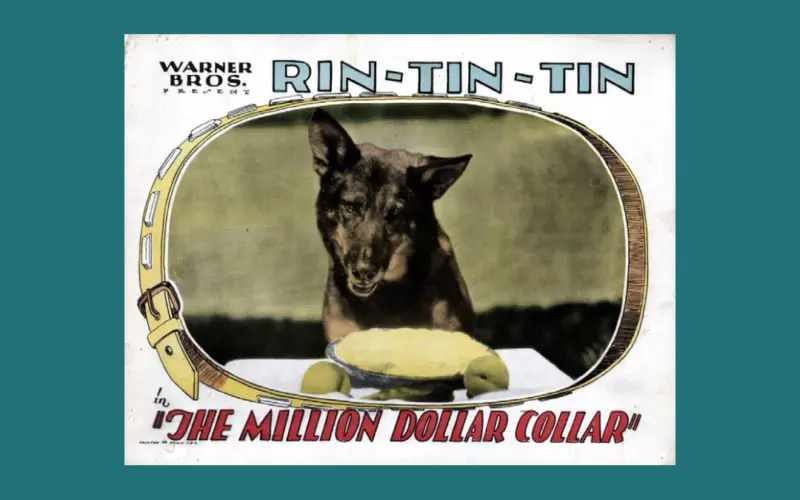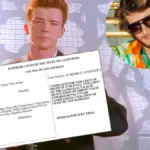Scott Duthie claims to own a 50% copyright interest in Rin Tin Tin, but that Warner won’t recognize his rights. Is the studio required to account?
While Champ and Major Biden made news this week as soon-to-be “First Dogs” of the White House, another famous German Shepherd, Rin Tin Tin, finds himself at the center of a new copyright lawsuit filed in federal court in Los Angeles (read here). The complaint raises some interesting issues about the nature of copyright co-ownership and whether the federal court even has jurisdiction to hear the case.
View FullscreenThe plaintiff, Scott Duthie, is a self-proclaimed motion picture and television producer in Montana who claims to own a 50% copyright interest in the Rin Tin Tin character. Duthie’s complaint seeks an accounting from defendants Rin, Inc., Jeff Miller, Sasha Jenson, and Warner Bros. Entertainment, all of whom have allegedly refused to acknowledge Duthie’s rights. Last year, Warner announced plans to a produce a new Rin Tin Tin motion picture which would reinvent the dog as “a modern action star, the John Wick of dogs.” I have no idea what that actually means, but that’s the pitch.
U.S. serviceman Lee Duncan discovered the real-life Rin Tin Tin on a World War I battlefield in 1918. Duncan rescued the puppy and brought him home to California, where he went on to become an international movie star. Rin Tin Tin starred in 27 films between 1922 and his death in 1932, helping to rescue Warner Bros. from bankruptcy in the process.

Rin Tin Tin’s Chain of Title
Like many classic (translation: old) entertainment properties, the chain of title to Rin Tin Tin is a bit of a mess. According to Duthie’s complaint, Duncan, the dog’s owner, assigned rights to his life story and the Rin Tin Tin character to Herbert Leonard, who produced “The Adventures of Rin Tin Tin” television series in the 1950’s. Leonard later assigned his rights to longtime friend Max Kleven, one of the stuntmen on the original TV show.
Kleven has previously been involved in a couple of Rin Tin Tin-related lawsuits of his own. In a 2015 opinion in Kleven v. Hereford, Judge André Birotte chronicled Kleven’s 2012 assignment of a 50% interest in Rin Rin Tin to Rin, Inc., a company set up by Jenson and Miller to hold IP rights in the property. Kleven’s interests originally aligned with Rin’s, but he later filed suit to rescind his assignment, alleging that Jenson and Miller defrauded him out of his stake in the Rin Tin Tin property. While the outcome of Kleven’s lawsuit was not publicly reported, we can only assume that Warner Bros. was comfortable that Rin, Jenson and Miller had sufficient rights in Rin Rin Tin for their project to go forward.
In his new complaint, Duthie claims that at the time Kleven purportedly transferred 50% of his Rin Tin Tin rights to Rin, Jenson and Miller, he had already assigned Duthie the other 50% back in 2011. Duthie doesn’t explain his relationship with Kleven or how he came to acquire Kleven’s interest. His contract, which is attached as an exhibit to the complaint, recites a payment of “one dollar ($1.00) as consideration” for Kleven’s assignment.
Duthie is now asking the court to declare that he’s a rightful co-owner of the Rin Tin Tin property. Duthie is also seeking damages against defendants Rin, Miller and Jenson for allegedly concealing his ownership interest in their dealings with third parties and for interfering with Duthie’s efforts to develop his own Rin Tin Tin movie.
“A Hero of the Big Snows” (1926) Tracked by the Police (1927)
Copyright Co-Ownership
Duthie’s complaint raises a couple of issues about copyright co-ownership worth discussing. (I mean, they aren’t worth discussing at a dinner party, unless you’re looking to make an early exit, but for a copyright blog, yes.)
Accounting Claims Between Copyright Co-Owners May Not Support Federal Jurisdiction
Copyright co-ownership typically arises in one of two ways. The first is in the case of “joint authorship.” This occurs when two or more authors each make material contributions with the intent to combine those contributions into a single work. The second way co-ownership can arise is through an assignment of a partial interest in a pre-existing work. This is how Duthie claims he acquired his interest in Rin Tin Tin.
As an initial matter, I’m not sure why Duthie even filed his lawsuit in federal court. The case doesn’t appear to require the court to construe or apply the Copyright Act, as opposed to simply interpreting state law contract rights . This isn’t a situation, for example, in which Duthie claims to be one of the authors of a work and the court needs to interpret the Copyright Act’s definition of joint authorship to determine whether he’s in fact a co-owner. Duthie’s co-ownership rights, if any, are based solely on agreements entered into years after Rin Tin Tin was created.
Importantly, Duthie hasn’t sued the defendants for copyright infringement, because co-owners (and their licensees) can’t be liable to one another for infringement. Each co-owner has an independent right to license third parties to use the copyright without the consent of the other joint owners.
While co-owners are required to account to each other for any profits earned from licensing or using the copyright, this duty to account arises out of common law equitable principles, not copyright law. Unless there’s diversity jurisdiction (which Duthie doesn’t allege), the federal court may be unable to decide the matter. I wouldn’t be surprised if the first filing we see in the case is a motion to dismiss for lack of subject matter jurisdiction.
Accounting Rights Can Only Be Enforced Against a Co-Owner, Not a Licensee
It’s also not clear to me why Duthie named Warner Bros. as a defendant in the first place. A co-owner’s right of accounting can only be enforced against the other joint owner that licensed the work (Rin, Inc.), not the licensee (Warner). To the extent the studio obtained a license from Rin, that would insulate Warner from an accounting claim by a non-licensing co-owner (Duthie). If Duthie is in fact owed money, he’d need to look solely to Rin, Jenson and Miller, not Warner.
There are certain situations in which a co-owner’s right to license are limited under the law. For example, one joint owner can’t purport to enter into an exclusive license that would bind the other joint owner. If Duthie is actually a co-owner of the Rin Tin Tin copyright, he would likely also have the right to enter into non-exclusive licenses with respect to the work. In other words, Rin wouldn’t be able to ensure that Warner had the exclusive rights to make a movie based on the character, as this would conflict with Duthie’s rights to enter into a similar license with another a third party.
Of course, all of this presupposes that Duthie actually has rights, which I presume the defendants will dispute. That said, this appears to be a dispute that should be decided in state court, and one which doesn’t need to involve Warner Bros.
As always, let me know what you think. Use the comment box below or check out the Copyright Lately social media accounts. We’re on Twitter, Instagram, LinkedIn and Facebook.









2 comments
At what point would Rin Tin Tin be in the public domain?
Some of the earliest Rin Tin Tin films are already in the public domain, including “Where the North Begins” (1923). But anything released after 1927 is still protected, and later works from the TV era will be protected for at least 30+ more years.